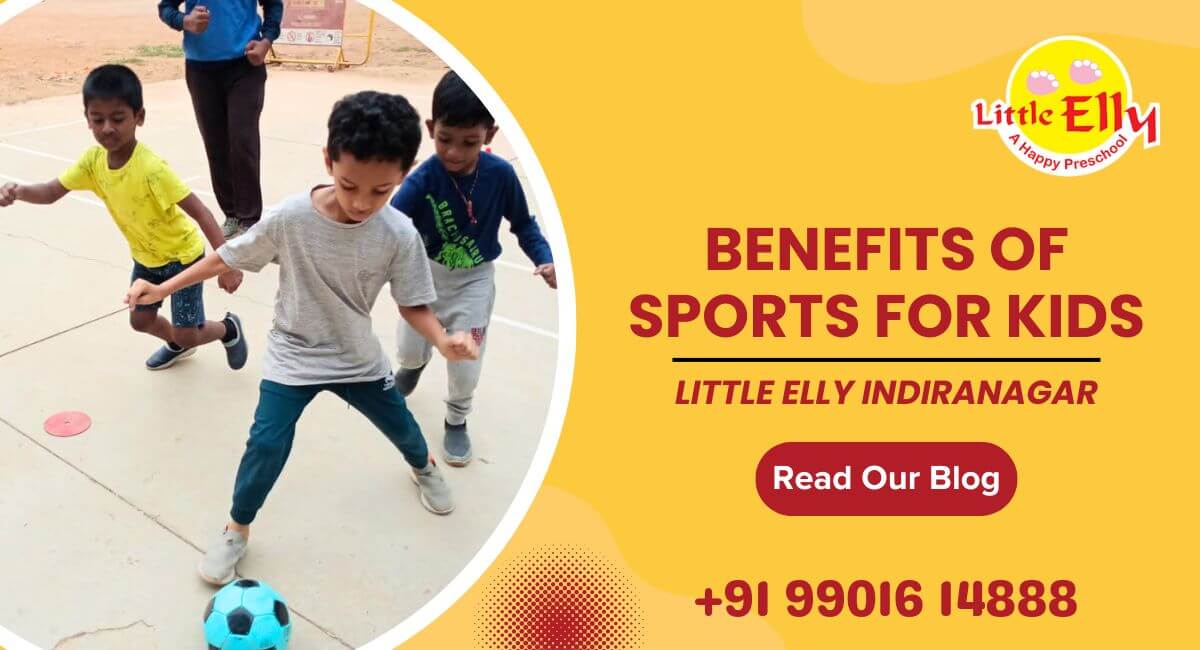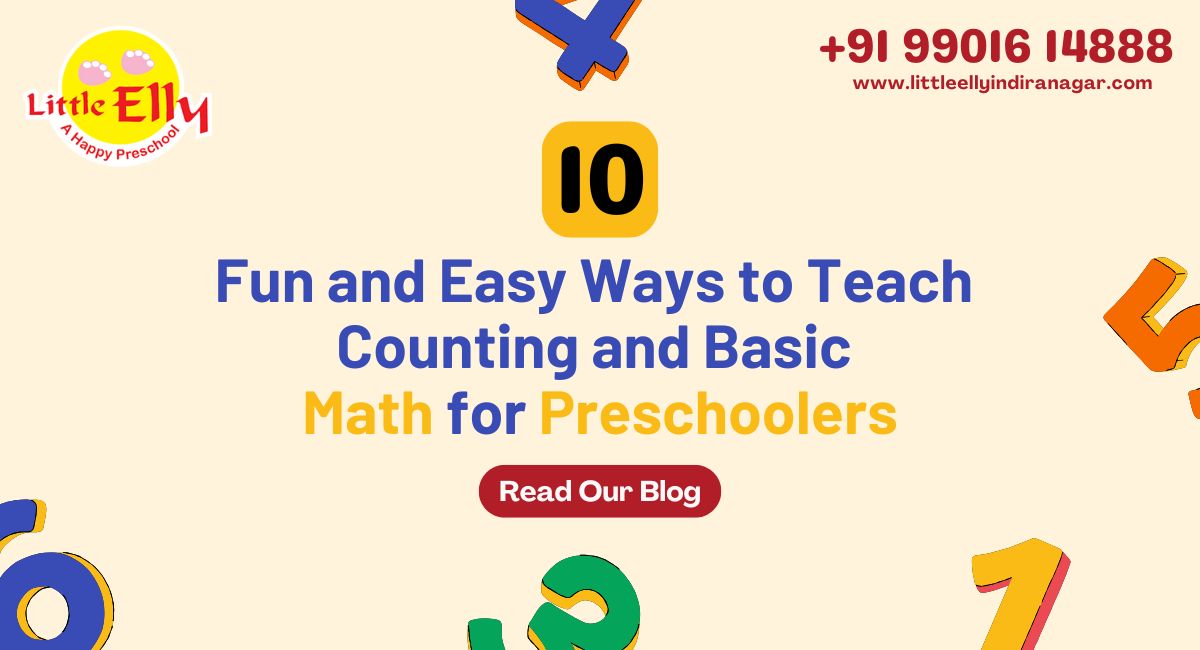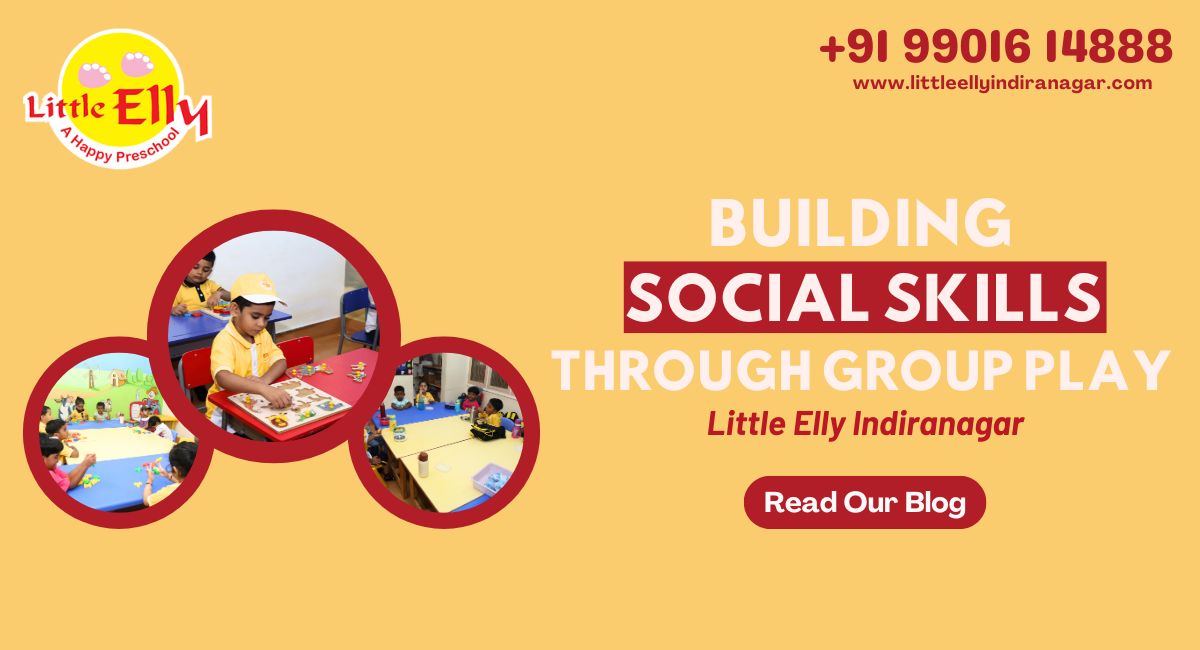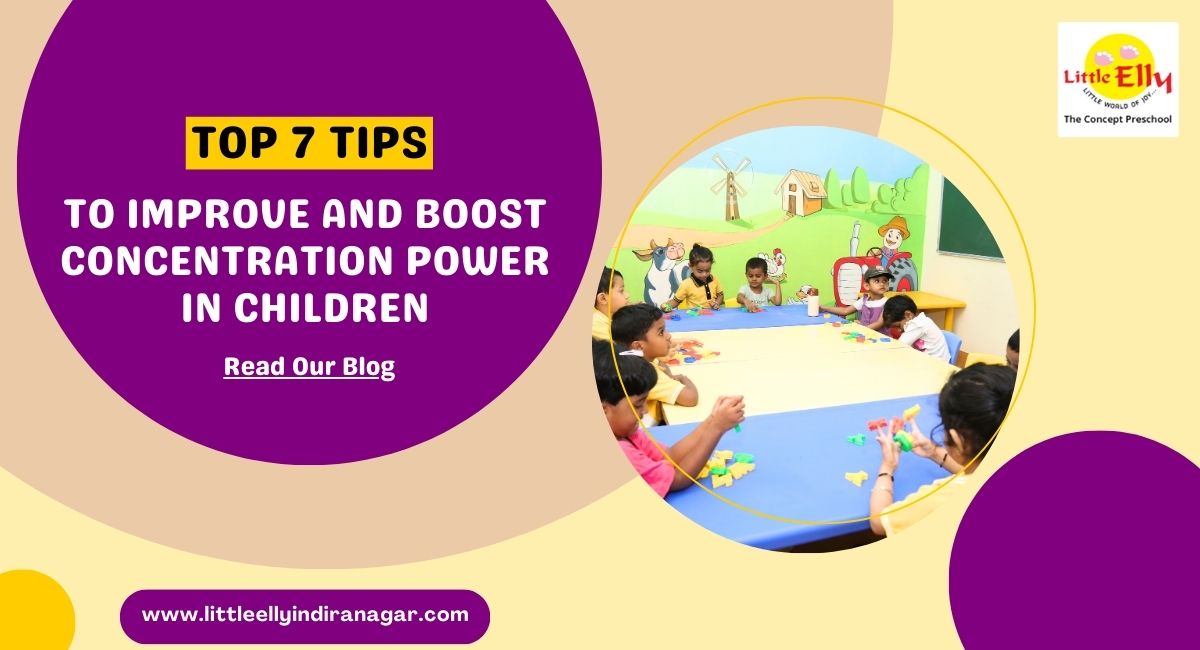Benefits of Sports for Kids | Little Elly Indiranagar

Table of content
1.Introduction
2.The Physical Benefits of Sports for Kids
3.The Psychological Benefits of Sports for Kids
4.The Social Benefits of Sports for Kids
5.The Educational Benefits of Sports for Kids
6.The Personal Developmental Benefits of Sports for Kids
7.Conclusion
8.FAQs
Introduction
Sports are not just about winning games or getting medals. They are about growing, learning, and becoming stronger both in mind and body. The importance of sports for kids goes way beyond the playground. In today's world, where kids spend so much time on screens, getting them involved in physical activities for kids is more important than ever. Sports not only keep them fit but also help them learn life skills, develop their character, and prepare for future challenges.
Engaging in sports has numerous benefits that touch every aspect of a child's life, from their physical health to their mental and emotional development. It also helps build social connections, boost academic performance, and shape personalities.
The Physical Benefits of Sports for Kids
Playing sports is one of the best ways for kids to stay healthy and grow strong. Regular physical activities for kids, like running, swimming, or team sports, help build muscles, improve flexibility, and increase stamina. It also helps develop motor skills, which are important for a child's overall development. Physical activity strengthens the body, which leads to fewer illnesses and a healthier life.
1. Strengthens Muscles and Builds Fitness
Sports like football, gymnastics, or swimming are great for improving physical fitness in kids. They develop strength, endurance, and flexibility. These activities also keep the heart healthy and boost cardiovascular fitness, reducing the risk of illnesses later in life. Active children often experience fewer health problems and recover faster from illnesses.
2. Boosts Energy Levels and Focus
Kids who play sports have more energy and are better at focusing on their studies or other activities. Being physically active keeps their minds sharp and their bodies full of energy. They feel less tired during the day and can handle tasks with more enthusiasm.
3. Reduces Childhood Obesity
One of the most significant issues in today's world is childhood obesity. With unhealthy diets and long hours of sitting, many children are at risk. Sports like cycling, basketball, or soccer burn calories, boost metabolism and keep kids fit. Regular exercise also helps them maintain a balanced weight. Plus, active kids are more likely to choose healthier foods, which further supports their fitness journey.
4. Encourages Better Posture and Flexibility
Playing sports improves posture and flexibility in children. Activities like yoga, gymnastics, and martial arts teach kids to move their bodies correctly, reducing the risk of injuries and promoting better posture. These benefits stay with them as they grow older, supporting their overall physical health.
The Psychological Benefits of Sports for Kids
Sports do not just make kids stronger physically; they also improve their mental health. The psychological benefits of sports for kids are immense, from building self-confidence to reducing stress. Participating in sports helps kids face challenges, overcome fears, and develop a positive outlook on life.
1. Boosting Self-Esteem in Children
When kids achieve something on the field, like scoring a goal or learning a new skill, it fills them with pride and boosts their self-confidence. This sense of accomplishment helps them tackle challenges in other areas of life, like academics or personal relationships. They learn that hard work and persistence pay off, which shapes their personality for the better.
2. Reducing Stress and Anxiety in Kids
Children today face stress from schoolwork, exams, and social pressures. Sports act as a natural stress reliever by releasing endorphins, also known as "happy hormones," which improve mood and reduce anxiety. Activities like running, swimming, or playing team games give children a break from their routine and help them recharge mentally.
3. Improving Cognitive Skills
Sports improve cognitive benefits of sports for children, such as memory, focus, and decision-making. Games like chess, cricket, or basketball involve strategies and quick thinking, which sharpen the mind. These mental skills help children perform better in school and prepare them to face challenges in life with confidence.
4. Promoting Emotional Stability
Sports teach kids to manage their emotions, whether it is the joy of winning or the disappointment of losing. This emotional balance makes them more resilient, helping them bounce back from failures and keep a positive attitude.
The Social Benefits of Sports for Kids
One of the most valuable aspects of sports is how it brings children together. The social benefits of sports for kids include teaching them how to work in teams, communicate effectively, and build lasting friendships. These skills are useful not only in sports but also in their personal and professional lives.
1. Developing Teamwork and Cooperation
In team sports like football or volleyball, kids learn the importance of working together to achieve a common goal. They understand how to communicate, share responsibilities, and support one another. These skills help them build strong relationships and prepare them for teamwork in school, college, and their future careers.
2. Building Social Skills Through Sports
Playing sports gives kids opportunities to interact with teammates, coaches, and even opponents. These interactions teach them respect, empathy, and understanding. Kids also learn how to resolve conflicts peacefully, which is an important life skill.
3. Teaching Fair Play and Sportsmanship
Sports instil values like respecting rules, accepting defeat gracefully, and treating others with kindness. These lessons shape their character and help them grow into responsible and ethical adults. Winning is important, but how they handle both victory and defeat teaches them important lessons about life.
(Check out our blog on Building Social Skills Through Group Play for more insights.)
The Educational Benefits of Sports for Kids
Many people overlook the connection between sports and academics, but the two go hand in hand. The educational benefits of sports for kids include better focus, time management, and leadership skills. Kids who participate in sports often excel in school because they learn discipline and how to manage their time effectively.
1. Better Academic Improvement Through Sports
Playing sports improves focus and concentration, which directly benefits academic performance. Kids involved in sports are better at managing their studies, assignments, and extracurricular activities, leading to improved grades.
2. Developing Leadership Skills in Children Through Sports
Sports offer opportunities for kids to take on leadership roles, such as being team captains or organizing practice sessions. These experiences teach them how to motivate others, handle responsibilities, and make decisions. Leadership skills gained through sports prepare them for success in all areas of life.
3. Enhancing Problem-Solving Skills
Sports encourage kids to think critically and adapt to changing situations. For example, a basketball player deciding on the best pass under pressure is learning problem-solving in real-time. These skills are valuable not just in sports but also in academics and other aspects of life.
(Read more about how outdoor games benefit kids in our blog, Top 10 Benefits of Playing Outdoor Games for Kids.)
The Personal Developmental Benefits of Sports for Kids
Sports shape a child's personality and character, teaching them lessons that last a lifetime. The personal growth kids experience through sports includes building discipline, resilience, and a positive attitude.
1. Teaching Discipline and Work Ethics
Through sports, kids learn the value of practice, routines, and hard work. These habits translate into success in school and later in their careers. Understanding the importance of consistent effort helps them achieve their goals.
2. Encouraging Goal Setting and Achievement
Sports provide opportunities for kids to set goals, whether it is improving their game or winning a match. Reaching these goals gives them confidence and motivates them to aim higher in life.
3. Developing Resilience and a Positive Attitude
Sports teach kids to handle both success and failure. Losing a game or missing a goal helps them learn to stay positive and keep trying. This resilience prepares them to face challenges in life with courage and determination.
Conclusion
The importance of sports for kids should be emphasized more. From the physical benefits of sports for kids, like improving fitness and reducing obesity, to the psychological benefits of sports for kids, like boosting self-esteem and reducing stress, sports offer countless advantages. They also teach kids about the social benefits of sports, such as teamwork and fair play, and provide educational benefits of sports for kids, including better focus and leadership skills.
Encouraging kids to participate in sports is one of the best decisions parents can make. Sports help children stay healthy, build essential life skills, and grow into confident, happy individuals. Let your child explore the world of sports and watch them thrive in every aspect of life!
At Little Elly Indiranagar, we nurture active and happy learners through play-based education. To learn more about our programs, contact us today! Mid-term admissions for 2024-25 are now open.
Frequently Asked Questions
Why are sports important for kids in school?
Sports are crucial for kids as they improve physical health, boost confidence, reduce stress, and teach teamwork, discipline, and resilience.
Why are sports important for kids?
Sports are crucial for kids as they improve physical health, boost confidence, reduce stress, and teach teamwork, discipline, and resilience.
















